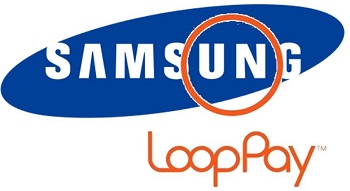A new type of wearables has been designed to assist consumers in protecting themselves against physical attack.
The risk of a physical attack is present in nearly any place and at any time, so a new type of wearable technology has now been developed in order to provide some practical benefit to the wearers and to provide useful advantages in that type of situation.
The new wearables were developed by Kat Alexander, who created the Siren Ring.
Alexander explained that “I was taking a shortcut and a man crossed my path and began to deliberately walk towards me.” Fortunately, she was able to escape the problem, but she did not leave the experience entirely behind herself. She created the Siren Ring, which is a piece of wearable technology that can be twisted in order to activate an alarm that sounds at 110 decibels.
This wearable technology is built to shock a potential attacker and to cause him or her to experience sensory overload.
 According to the owner of Command Excellence, John Sakoian, the shock from the noise of the ring could overload the senses of a potential attacker, which could be very handy in helping to make an escape. The company is provides local safety consulting services. He stated that it is a bright idea to use this wearable tech because it is easily accessible whenever the wearer requires it, even in an emergency.
According to the owner of Command Excellence, John Sakoian, the shock from the noise of the ring could overload the senses of a potential attacker, which could be very handy in helping to make an escape. The company is provides local safety consulting services. He stated that it is a bright idea to use this wearable tech because it is easily accessible whenever the wearer requires it, even in an emergency.
Though the ideal option is to call 911 in the case of an emergency, using a cell phone to reach the police, in the event that an individual is in true danger, taking out a smartphone and making a phone call may not be entirely possible.
The Siren Ring has a special alert button that can be activated through a smartphone app, as well. This mobile app opens up a number of additional features that can be accessed with the thumb. It offers various help features and panic buttons. There is a special wearable technology pod that can be placed on the body that can provide automatic injury detection in the event that a violent crime should occur.
Samsung has confirmed that it will be acquiring LoopPay
Samsung has announced that it will, indeed, be acquiring mobile payments technology firm LoopPay. Rumors concerning this acquisition have been circulating for some time, bolsters by Samsung’s growing interest in mobile payments. The acquisition is expected to help Samsung better compete in the mobile commerce space, which has become filled with companies that are seeking to gain the favor of mobile consumers throughout the world. The acquisition may also hint at Samsung’s future efforts in the mobile commerce space.
Firm develops technology that can turn conventional point-of-sale systems into mobile payments terminals
LoopPay develops technology that is capable of giving 90% of conventional point-of-sale systems the ability to accept mobile payments. This technology has become quite valuable, as more retailers are looking to accept mobile transactions in their physical stores. Many of Samsung’s most recent devices are able to conduct mobile transactions, but relatively few retailers support these payments physically. That is changing as mobile commerce continues to prove that it is a powerful force, pressuring more retailers to embrace mobile point-of-sale systems.
Samsung may be developing its own mobile payments system in order to compete with other companies
 Samsung is rumored to be developing its own mobile payments platform, called Samsung Pay. This platform is likely to be based off technology developed by LoopPay. This technology would be used by retail partners in order to accept mobile payments through the new service. Samsung has not yet revealed details concerning this potential platform or whether or not it will be working with retailers to launch a new mobile payments service.
Samsung is rumored to be developing its own mobile payments platform, called Samsung Pay. This platform is likely to be based off technology developed by LoopPay. This technology would be used by retail partners in order to accept mobile payments through the new service. Samsung has not yet revealed details concerning this potential platform or whether or not it will be working with retailers to launch a new mobile payments service.
Competition may be difficult, as other companies have a well established place in the mobile commerce field
Samsung has been relatively slow to enter into the mobile commerce field on its own. The company is currently set to compete with others, such as Apple and Google, in order to gain the favor of mobile consumers. Competition is likely to be fierce, as both Apple and Google already have a well established presence in the mobile payments space.
 According to the owner of Command Excellence, John Sakoian, the shock from the noise of the ring could overload the senses of a potential attacker, which could be very handy in helping to make an escape. The company is provides local safety consulting services. He stated that it is a bright idea to use this wearable tech because it is easily accessible whenever the wearer requires it, even in an emergency.
According to the owner of Command Excellence, John Sakoian, the shock from the noise of the ring could overload the senses of a potential attacker, which could be very handy in helping to make an escape. The company is provides local safety consulting services. He stated that it is a bright idea to use this wearable tech because it is easily accessible whenever the wearer requires it, even in an emergency.
 Samsung is rumored to be developing its own mobile payments platform, called Samsung Pay. This platform is likely to be based off technology developed by LoopPay. This
Samsung is rumored to be developing its own mobile payments platform, called Samsung Pay. This platform is likely to be based off technology developed by LoopPay. This 